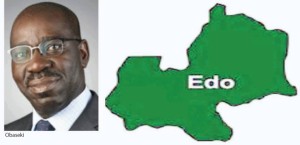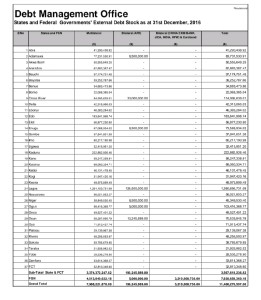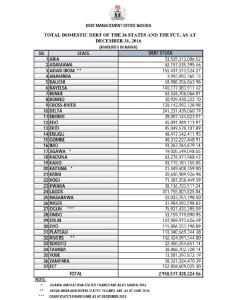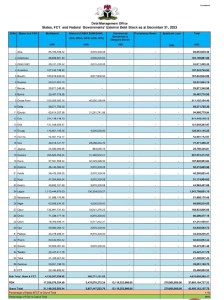
Edo State Now 3rd Most Indebted State in Nigeria, Owes N570 Billion Domestic, External Debt
Edo State’s economy is currently struggling under a growing debt burden, a result of the administration led by Mr. Godwin Obaseki since he assumed office in 2016. The state’s domestic debt has surged from N45.091 billion in December 2016, when Obaseki took over from Comrade Adams Oshiomhole, to N123.879 billion by December 2023. Similarly, the external debt has increased from $183.641 million to $314.448 million within the same period.

This represents an increase of N78.788 billion in domestic debt and $130.841 million in external debt, according to figures released by the Debt Management Office. At the current exchange rate, the external debt equates to N445,430,980,000 (Four Hundred and Forty-Five Billion, Four Hundred and Thirty Million, Nine Hundred and Eighty Thousand Naira). In total, Edo State’s debt stands at N569,430,980,000 (Five Hundred Sixty-Nine Billion, Four Hundred Thirty Million, Nine Hundred and Eighty Thousand Naira), placing it as the third most indebted state in Nigeria, behind Lagos and Kaduna States.

Notably, this figure does not include a $75 million loan for ‘school improvement’ borrowed from the World Bank late last year, nor does it cover term loans and overdrafts extended to the state by Sterling Bank and others over the past 12 months.
The debt crisis is further compounded by loans aimed at agricultural development that have not yielded the intended benefits. In 2017, the State House of Assembly approved two loans totaling N11 billion for agricultural projects, which included developing 5,000 hectares of land and establishing greenhouses and fish ponds. Despite these loans, local farmers have complained of not receiving the funds or benefits promised.
In 2021, Edo farmers petitioned former President Muhammadu Buhari and the Economic and Financial Crimes Commission (EFCC) over the alleged misuse of N75 billion in agricultural loans. The farmers claimed they did not receive proceeds from their crops and alleged that funds from various agricultural programs were mismanaged.
Due to these issues, experts are calling on the state House of Assembly to halt further loans until a thorough investigation is conducted into the use of previous loans. They urge the Central Bank of Nigeria (CBN), World Bank, and other financial institutions to investigate and ensure accountability for the funds disbursed.

Edo State’s mounting debt and economic stagnation highlight the urgent need for fiscal responsibility and transparent governance. Addressing these challenges is crucial for the state’s financial health and future development.


 Naija Music2 weeks ago
Naija Music2 weeks ago
 Naija News2 weeks ago
Naija News2 weeks ago
 News2 weeks ago
News2 weeks ago
 Naija News2 weeks ago
Naija News2 weeks ago
 News6 days ago
News6 days ago
 Naija News5 days ago
Naija News5 days ago
 Dj Mixtape4 days ago
Dj Mixtape4 days ago
 Naija Music1 day ago
Naija Music1 day ago





